8 AC Compressor Failure Causes That Can Be Prevented In Houston
There many issues that can cause your air conditioning system to break down. Fortunately, not all of the fixes are expensive. The problem might be a loose wire that has caused your air conditioner to experience a power failure. Or your air filter might be clogged that is impeding air flow into your air conditioning system.
However, if your AC compressor failure causes the system to breakdown, then that is a major AC emergency service issue and a huge expense that you will be forced to deal with. The compressor is an expensive and critical component, and when it breaks down you might find yourself spending a lot of money on a new air conditioning unit.
Fortunately, up to 80 percent of AC compressor failure causes can be prevented if the problems that lead up to the failure are fixed in a timely fashion. During the regular AC preventative maintenance process, those problems can be discovered and eliminated.
What Is The Compressor?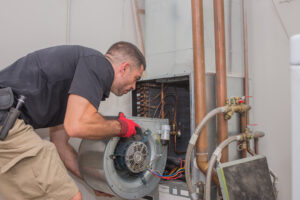
The compressor on your air conditioner is frequently considered to the heart of the entire system. There are a couple of different reasons why it is a good analogy:
The compressor is one of the critical components that the system cannot function without.
Usually, it is very reliable, and if it did fail before the expected life span (10-15 years), it most likely will be due to an underlying cause that frequently could have been prevented.
If it does fail, it will be expensive and at times will be impossible to repair.
Just as your heart pumps blood throughout your body, the job of the compressor is to compress the refrigerant gas and then pump it throughout the system so it removes humidity as well as heat out of the air.
So now you see why it is so crucial to maintain your compressor in great condition. Now let’s take a closer look at some of the main things that may cause AC compressor failure and steps you can take to avoid them.
Issues That Cause The Failure Of The AC Compressor
When the AC compressor does fail, it frequently occurs based on an underlying problem that places stress on your system. There are two reasons why this is important to know:
By discovering the repairing of the underlying cause, it can help you prevent the failure of your AC compressor.
If a failed compressor is replaced without repairing the underlying cause, then your new compressor will also likely fail.
There are two common issues that can cause your AC compressor to fail:
1. Dirty Coils
Whenever grime, mineral scales, and dust build up onto the condenser coil, then the air conditioner will not be able to expel a sufficient amount of heat from the system and will be forced to constantly run in an attempt to cool down your home. The increased temperature and pressure may cause your compressor to overheat and then fail eventually.
2. Blocked Suction Lines
Whenever the refrigerant lines on your air conditioner become damaged or blocked, the first thing that you will notice is the unit is not cooling your home as effectively as it used to be. If you don’t fix the problem, then the increased temperature and pressure will once again cause it to overheat and the AC compressor will fail.
3. Low Refrigerant Charge
If the refrigerant lines on your system develop cracks or holes, the air conditioner will leak refrigerant. Soon the level will become so low the compressor is forced to work harder in order to pump a sufficient amount of refrigerant through its system in order to cool down your home. The strain will cause your compressor to break down eventually.
4. Incorrect Size Of The Suction Line
If leaks develop in the refrigerant line it will need to be replaced, and be sure to have the job done by an experienced AC technician. A line that is too small or too large for your system it may cause your AC compressor to fail prematurely.
5. Too Much Refrigerant
If an individual who is less-than-qualified works on your air conditioning system and mistakenly adds the wrong type or too much refrigerant, then it could be a fatal mistake for your compressor.
6. Electrical problems
When an electrical failure occurs that may result in acid builds up that may cause extensive damage to other parts along with the compressor. If you do have a failed compressor on your hands, be sure your technician tests to see if these acids are present. If they are discovered, the damage has been caused throughout the system by an electrical burnout that probably is not worth the money to fix it.
However, electrical problems are frequently preventable when your system is inspected by an experienced technician. He will be able to detect and repair damaged contractors, fuses, and wiring before your system breaks down and causes the AC compressor to fail.
7. Contaminants Inside Your System
The oil and refrigerant circulate throughout the refrigeration loop while the compression is operating. Over time, it can become contaminated with rust due to metal particles, desiccant, and moisture due to a failed compressor. Those impurities will travel along with the mixture of the refrigerant oil and settle through the system.
If a new compressor is put into a refrigerant system that is dirty, the new compressor will end up sucking in loose contaminant particles and will fail rather quickly. Inspect the expansion devices and oil for signs of foreign particles or grit.
8. Inadequate Oil Lubricant
To take our heart analogy one step further, consider the oil lubricant in your air conditioner as the blood inside of your body. If that is not enough, then the system will not work correctly and all types of problems may result, which include the AC compressor failing. When your system is maintained on a regular basis by a trained AC professional, this problem can be prevented by him checking the oil pump’s condition and lubricant levels.
Provide Your Compressor With AC Preventative Maintenance
If you care for your compressor properly, it will do a good job with the air in your home by providing you with reliable, consistent cool. This means your air conditioning system should be serviced twice a year at minimum, by an experienced, knowledgeable technician such as AC Man Houston. Then you will know they have the necessary expertise to detect and prevent problems that may cause your AC compressor to fail.
Were you aware that you can get the best deal on your AC preventative maintenance if you invest in an annual service contract? That will also provide you with a maintenance plan that is specifically designed for your budget and needs. Would you like to learn more? Check out our free guide. For dependable AC repair service call on AC Man of Houston and let our experts assist you with all of your AC repair, replacement, and maintenance service need. We can service all makes and models of air conditioning systems, You can rely on us for a wide range of air conditioning services other than window units. We are one of the very companies that are certified. We are one of the very best around!
Contact us now or call us today for more information!
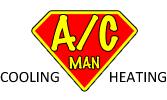
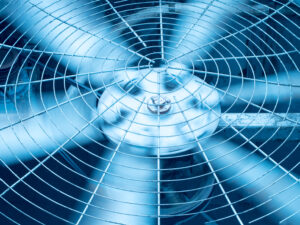 Of course, you would like your
Of course, you would like your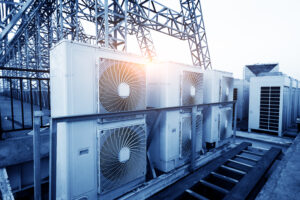 While it may seem like nothing, keeping your blinds closed helps block excess heat from entering your home. Opening the windows and doors equates to around 30% of heat gain in your house, Family Handyman. Keeping these closed and using shades, curtains, and blinds can help keep your home cooler for longer, thus saving you at least 7% in energy bills. Keeping blinds closed prevents the greenhouse effect, a typical case in west and south facing windows.
While it may seem like nothing, keeping your blinds closed helps block excess heat from entering your home. Opening the windows and doors equates to around 30% of heat gain in your house, Family Handyman. Keeping these closed and using shades, curtains, and blinds can help keep your home cooler for longer, thus saving you at least 7% in energy bills. Keeping blinds closed prevents the greenhouse effect, a typical case in west and south facing windows.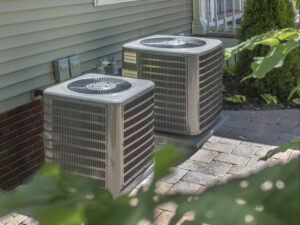 Another factor that determines the lifespan of your AC is where you live. An AC unit in Texas, for instance, will run about 24 hours every day. An AC unit in Indiana, however, only runs for a season. When an AC runs often it undergoes a lot of wear and tear. Even if you keep it maintained it will still fail a lot sooner than a unit that only runs once a season. If you live near an ocean, the salt air will rust the AC’s components out and cause it to fail soon. Never point sprinklers at the unit. This can also cause rusting to occur which is another way an AC unit can fail faster.
Another factor that determines the lifespan of your AC is where you live. An AC unit in Texas, for instance, will run about 24 hours every day. An AC unit in Indiana, however, only runs for a season. When an AC runs often it undergoes a lot of wear and tear. Even if you keep it maintained it will still fail a lot sooner than a unit that only runs once a season. If you live near an ocean, the salt air will rust the AC’s components out and cause it to fail soon. Never point sprinklers at the unit. This can also cause rusting to occur which is another way an AC unit can fail faster.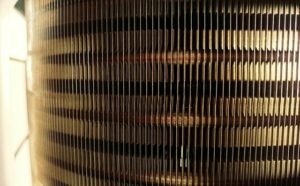 While there are several factors you need to consider when choosing an HVAC system, the process is not that complicated. What matters is picking the right HVAC because such an investment is not one that you will make regularly. As such, you should be familiar with what’s available in the market, the efficiencies of the different HVAC, their
While there are several factors you need to consider when choosing an HVAC system, the process is not that complicated. What matters is picking the right HVAC because such an investment is not one that you will make regularly. As such, you should be familiar with what’s available in the market, the efficiencies of the different HVAC, their 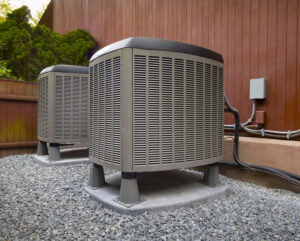 If you live somewhere really warm, like Houston, that has electricity cheaper than gas, then seriously consider a heat pump. On the other hand, if your location has sub-freezing temperatures in winter and your electricity costs more than gas, use a combination of a furnace and air conditioner. Simple enough, right? Your utility rates and local climate should determine just which HVAC system is going to be your best bet.
If you live somewhere really warm, like Houston, that has electricity cheaper than gas, then seriously consider a heat pump. On the other hand, if your location has sub-freezing temperatures in winter and your electricity costs more than gas, use a combination of a furnace and air conditioner. Simple enough, right? Your utility rates and local climate should determine just which HVAC system is going to be your best bet.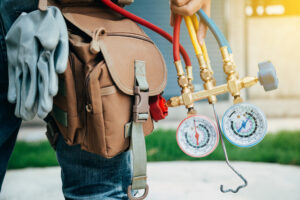 What could be behind this sort of mechanical betrayal? Lots of things! There are many issues that can push down the temperature of the air your furnace emits, and some of them can be easily solved without professional assistance.
What could be behind this sort of mechanical betrayal? Lots of things! There are many issues that can push down the temperature of the air your furnace emits, and some of them can be easily solved without professional assistance.